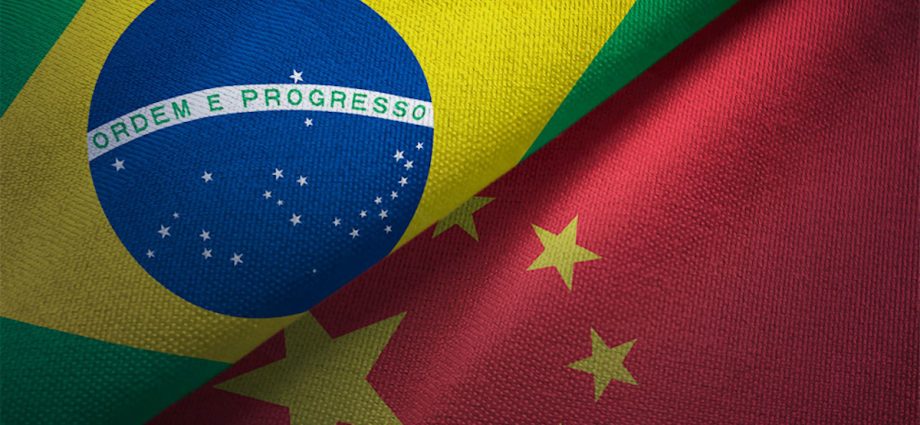A Rio-based Chinese bank will be connected to China’s cross-border interbank payment System (CIPS), an alternative to SWIFT, to support trade settlements between China and Brazil in renminbi.
Banco BOCOM BBM, a subsidiary of the Bank of Communications, China’s fifth largest bank, will be linked to CIPS to reduce the costs of commercial transactions with the direct exchange between Brazilian real and Chinese yuan, according to a statement released by the Brazilian Trade and Investment Promotion Agency (ApexBrasil).
The bank will become the first direct participant in the CIPS in South America while the Brazilian branch of the Industrial and Commercial Bank of China will become the renminbi clearing bank in Brazil, said ApexBrasil.
The announcement came after China and Brazil reportedly struck a deal to allow companies to settle their trade transactions in the two countries’ own currencies, ditching the United States dollar as an intermediary.
In early February, the People’s Bank of China (PBoC) and the Brazilian central bank signed a memorandum of cooperation to establish renminbi clearing arrangements in Brazil.
“These arrangements will help enterprises and financial institutions in both countries conduct cross-border transactions using the renminbi,” Mao Ning, a spokesperson of the Chinese foreign ministry, said Thursday. “They will also further facilitate bilateral trade and investment.”
Last year, Sino-Brazil bilateral trade rose 4.9% year-on-year to US$171.49 billion, according to the Chinese government. China’s exports to Brazil, including machines, computers, steel, textiles and autos, surged 15.7% to US$61.97 billion. China’s imports from Brazil, including iron ore, soybeans, crude oil and paper pulp, fell 0.4% to US$109.52 billion.
Business forum and agreements
Originally, Brazilian President Luiz Inacio Lula da Silva planned to visit China between March 26 and 31 but he could not make it due to health reasons. On Wednesday, over 500 Brazilian and Chinese business people proceeded with a business forum in Beijing as scheduled.
Brazil’s Ministry of Foreign Affairs said in a statement that companies from both countries reached more than 20 agreements across different sectors, including energy, mining, agriculture and information-and-communication technology.

More and more countries are willing to use the renminbi in clearing and payments, which is a significant step for yuan internationalization, Zhu Min, vice-chairman of the China Center for International Economic Exchanges, told the China Daily on the sidelines of the Boao Forum for Asia Annual Conference.
Zhu said the financial sanctions imposed by the US on Russia last year have shaken people’s confidence in the dollar, boosting the global use of other currencies, including the renminbi.
According to SWIFT, payments in renminbi accounted for 2.19% of global payments by value in February, up from 1.91% in January, ranking fifth among major currencies for the 13th month in a row.
Sanctions against Russia
Since Russian troops began a full-scale invasion of Ukraine on February 24 last year, the United States and the European Union have imposed several rounds of sanctions on Russian officials, oligarchs, banks and the central bank.
Beijing refused to yield to what it called unilateral sanctions without authorization from the United Nations. State media said in March last year that China-Russia bilateral trade would continue to grow with the increasing use of CIPS.
Then, on March 21 of this year, Chinese President Xi Jinping and Russian President Vladimir Putin signed a joint declaration to boost diplomatic and economic ties. Both sides agreed to promote trade settlement in their own currencies.
Zhang Chao, a researcher at Taipei Institute, a Beijing-based think tank, told the National Business Daily that Brazil’s deal is an important milestone for yuan internationalization.
“There are three stages for renminbi internationalization– first is the global use of renminbi in small-scale international trade, then in commodity trade and finally the transformation of renminbi into a reserve currency,” Zhang said. “With Brazil’s deal, we have now completed the second stage.”
He said many countries lost confidence in the dollar due to the US sanctions against Russia and the recent US and European banking crisis. Without naming a particular country, he said China has been buying crude oil in the gulf in renminbi.
The National Business Daily said China is trading with Iraq and Pakistan in renminbi. Chinese media said previously that China is buying crude oil from Iran, which has been the target of sanctions by the US since 2018. An Iranian minister said in February that “a certain part of exchanges in Iran’s trade with China has been carried out in renminbi.”
China has previously proposed to pay Saudi Arabian oil in renminbi but the progress of the discussion remains slow.
On March 16, an online post claimed that Saudi Arabia and Iran had agreed to settle oil trade with China in renminbi. But Chinese media later found out that it was fake news.
Convertibility of renminbi
Most Chinese newspapers said Friday that the Sino-Brazil deal will be a heavy blow to the US dollar hegemony. But some media pointed out that it will take some time for Brazilian exporters to become more willing to receive yuan.
Analysts have said that most natural resource sellers still prefer to receive dollars and euros, instead of renminbi, which lacks convertibility and investment tools. They said some companies choose to receive renminbi as they need to purchase Chinese products, such as machines and autos.
To provide renminbi holders with more investment tools, the Hong Kong stock exchange said last December that it would introduce a Hong Kong dollar-renminbi dual counter model, which will allow people to buy Hong Kong stocks directly in renminbi. So far seven listed firms have applied to list their shares in yuan but the program has not yet commenced.
Read: China welcomes Russian firms to trade with RMB
Follow Jeff Pao on Twitter at @jeffpa03

